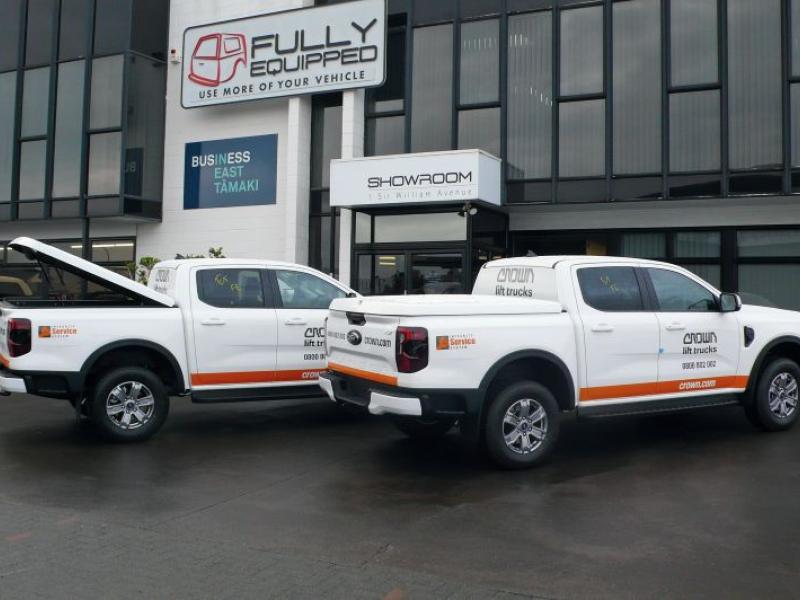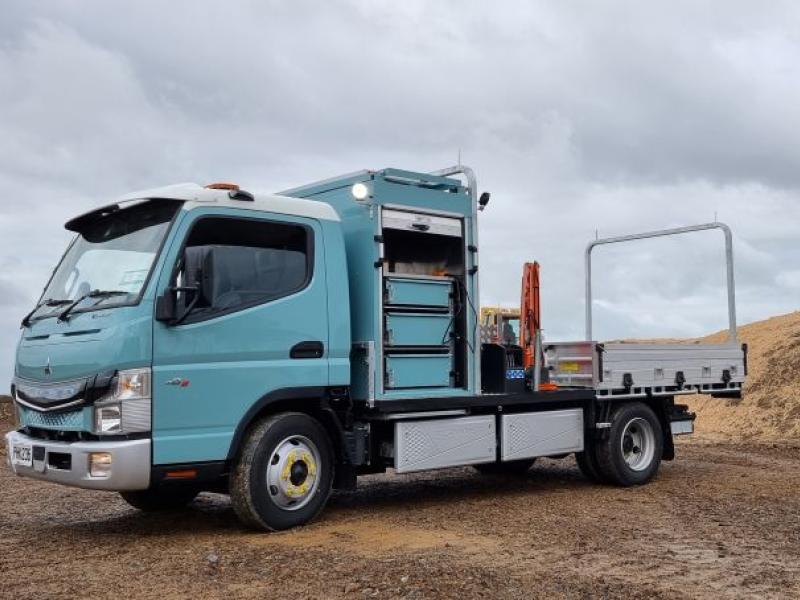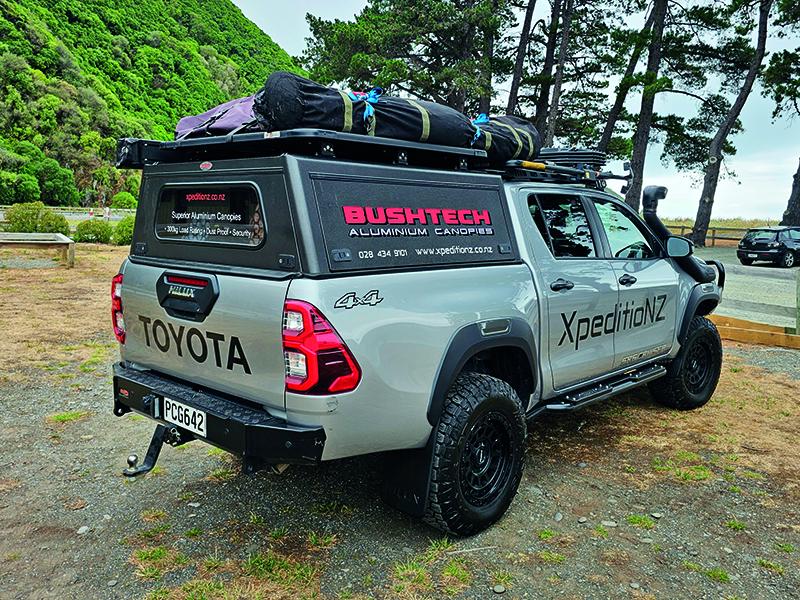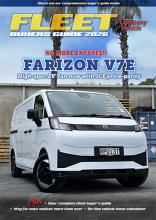| Large Fleet With more than 450 vehicles nationally Coca Cola Amatil NZ Limited (CCANZ) has one of New Zealand’s largest privately owned fleets with a mixture of passenger and light commercials used daily to support their operation. Over the last two years CCANZ has undertaken various projects and reviews when purchasing its vehicles, which covers all aspects from environmental issues to company savings. Part of the savings has been to identify whether the company should lease versus buy its vehicles. Procurement specialist Dawn Goodeve says that by performing this analysis it shows that leasing is not an option for the CCANZ fleet because the company feels that 36 to 45 months is too limiting for running vehicles and the costs of refurbishment can be exorbitant. “Owning our vehicles gives us flexibility and total control,” she says. “Why would you want to pay extra costs on a vehicle when you return it to the leasing provider?” “However, if you are buying cheap cars with no residual value, then by all means lease them because it’s about being smart with what you do.” “You don’t need to replace a vehicle at three years of age, there is a market for that vehicle at four to five years, you just have to be sensible about what you are buying now.” says Dawn. “I control when I sell the old fleet vehicles at auction and I have dealers calling me directly asking what I have coming up for sale.” “It’s also important to phase your old vehicles out gradually, it’s more cost effective to roll a new fleet model in over a longer period, and it protects your residuals and provides a greater return.” With light commercial vehicles Dawn says that as long as they are maintained properly most should travel up to 400,000 km as per most manufacture’s statistics. “If a light commercial has low kilometres, is still in tidy condition and is not costing us money in repairs, then we’ll keep using it until it becomes uneconomic.” Dawn says that having a large fleet gives her buying power but she prefers to offer and deal if available with local car dealers and support local business. There are two reasons for this: Dawn says that too many big companies buy all their vehicles from one place and that the representatives need local dealership support after the vehicles have been delivered. “Where ever you see a dairy there is a local CCANZ rep and they need a fleet vehicle that can be supported at a national and local level. I always ask the question of the manufacturer when researching a new fleet vehicle, can you guarantee support nationally?” Dawn says this issue needs to be considered not just for the regional reps but also in the total cost of ownership model (TCO). Other fleet procurement issues include how many business and personal kilometres will be travelled, as well as potential fuel and servicing costs and the environmental aspects. Custom Fleet provide CCANZ with fleet management that tracks all costs and monthly expenditure, as well as arranging servicing and repair and if necessary accident management. “We keep an active eye on all costs and we can track the performance of like motor vehicles against each other to check for anomalies,” says Dawn. In the last two years CCANZ has made a fundamental change to the make up of its tool of trade fleet. Front-wheel-drive Volkswagen Golf 1.9 litre TDi diesel hatches have replaced the familiar all-wheel-drive Suzuki Vitara. The change came about after considering the environmental needs, and what each Rep required. Due to changes in the business there is less of a requirement to carry large stock and CCANZ wanted a more environmentally, safer, fuel efficient vehicle for employees who travelled distances. Even with the need to pay road user charges, the Golf TDi has created a noticeable fuel saving over the Vitara. Where some representatives previously had a monthly fuel bill of $1000.00 for the Suzuki, on the same route the Golf TDi consumes around $250.00 for the same amount of kilometres travelled. The changes also reduced the C02 output per vehicle by just over a tonne a year. CCANZ also purchases Suzuki SX4 vehicles for merchandisers, and current management vehicles include the Ford Mondeo diesel, Mitsubishi Outlander, and Toyota Aurion. Pool vehicles include Mitsubishi Lancer station wagons, and promotion vehicles include Ssangyong Rextons, a Ford F-150 truck and a Cadillac Escalade. Currently the company has one Mini Cooper promotional vehicle in Auckland and Wellington but Dawn says that being a manual transmission limits the number of drivers who can use the vehicle. “As well as meeting the needs of the company the car has to meet the needs of the drivers, says Dawn. “We ask for feedback on the cars, what works and why? What doesn’t work and why? Many employees can’t drive a manual car and this must be taken into account when purchasing a fleet.” Dawn says that the Golf TDi has proven to be a winner in terms of total cost of ownership, reduced environmental impact and driver satisfaction. Medium Fleet A well known household name Nestle New Zealand operates a fleet of around 150 vehicles across tool of trade and four management levels. CFO John Davis has been with the company for 19 years, holding the position of chief financial officer for the last six years. John says that historically Nestle has always leased their vehicles on a fully maintained operating basis, the only change is that the company has moved from 36 month packages to 45 month because he felt that three years was too short a timeframe to continually replace vehicles. “We don’t have the hassle of the administration costs and time that we would face if we owned the fleet outright,” John says. “Extending existing leases is relatively easy and the extra nine months does not significantly impact upon costs.” “We also replace the fleet in small batches; you don’t want the cost of rolling it all over at once.” Nestle use up to three different leasing providers but predominantly two. John says that some vehicle manufacturers have a better structure for leasing such as Toyota Financial Services and Honda Lease, but Nestle also use the services of independently owned leasing provider ORIX. John says that obtaining expert advice on fuel efficiency, safety and emissions from providers such as ORIX is essential in his procurement decisions, but transparency and the best deal will win on the day. “But making a decision on vehicles involves much more than just how much money have we got to spend on them,” he says. The current vehicle split is exactly 50/50; there are 75 tools of trade vehicles and 75 office/management vehicles making up the Nestle fleet. Choosing the wrong car, particularly for a tool of trade vehicle can be detrimental to team morale according to John. Five years ago Nestle held a full fleet review and decided to downsize their tool of trade vehicles from 2.3 litre Mazda6 wagons to 2.0 litre Ford Focus and 1.5 litre Nissan Wingroad station wagons. It was not a popular move amongst some staff members. |
“We made the wrong choice in downsizing and we are now changing our tool of trade vehicles back to 2.0 litre Mazda6 sport wagons, which our staff is very happy about.” says John. |






